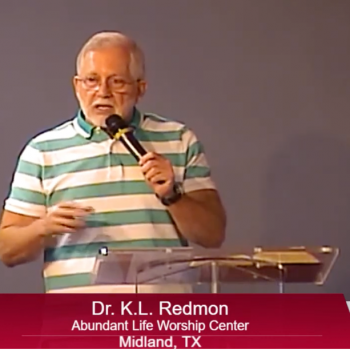Earlier this week, the Utah Supreme Court heard a horrific case alleging that, more than a decade ago, Jehovah’s Witness leaders psychologically tortured a 15-year-old girl by forcing her to listen to an audio recording of her own rape.

The woman, whose name we have chosen not to print here, says that a fellow congregant four years her senior first raped her in December of 2007. He raped her multiple times and recorded at least one of those instances. Then, for unknown reasons, he provided a copy of the recording to the congregation’s leadership.
Given that the age of consent in Utah is 18, those leaders should have taken the evidence directly to law enforcement and reached out to offer the girl support in seeking justice, while demanding that the rapist take responsibility for his actions and attempt to make amends.
Of course, that’s not what happened.
Premarital sex is a sin in their faith, so a tribunal of church elders convened in an attempt to convince her to confess. They wanted her to admit that she had engaged in consensual sex outside of the bonds of matrimony. The meeting, during which they played the recording repeatedly, lasted at least four hours. She was, at the time, still a minor; the tribunal convened in 2008.
After suffering from trauma symptoms that impacted her day-to-day life for years, she filed a lawsuit alleging “intentional infliction of emotional distress” — or, to put it in simpler terms, emotional abuse. She wanted those leaders to be held accountable for traumatizing her.
In addition to the four elders who participated directly in the tribunal, she sued her local Kingdom Hall and the Watchtower Bible and Tract Society, the nationwide organization that governs the Witnesses as an organization.
The case initially came before the Second Judicial District Court in 2016. While that court admitted at the hearing that it would have “no hesitation” about proceeding with the case if the abuse had taken place in a secular setting, the religious angle complicated matters. Ultimately they ruled that holding the church liable for traumatizing a young teenager would violate the leaders’ First Amendment rights.
To say that another way, because these leaders allegedly traumatized a girl in a religious setting, for religious reasons, there’s a legal discussion taking place over whether the courts can do anything about it at all.
Robert Friedman of the Institute for Constitutional Advocacy and Protection, who’s serving as the plaintiff’s attorney, says the lower courts got it wrong. While he and his colleagues acknowledge that religion was a motivating factor for the elders’ behavior, their appeal argues that it cannot justify their clearly reprehensible actions:
The [Establishment] Clause’s prohibition on government action “respecting an establishment of religion” does not immunize intentionally tortious conduct — like the seriously harmful acts at issue here — simply because the tortfeasor has a religious motive or the conduct somehow relates to religious discipline. That rule, if allowed to stand, would give actors free rein to injure others under the guise of religious freedom.
… When a defendant violates an independent and religiously neutral principle of civil law, the Establishment Clause imposes no obstacle to relief even if that defendant asserts that he was motivated by a religious belief.
Defense attorney Karra Porter, described on her firm’s website as “one of the most experienced and successful appellate lawyers in Utah,” argues that the government is legally prohibited from meddling in a church’s efforts to determine whether a congregant has committed a sin. She also argued that, while she would draw the line at physical torture, “infliction of emotional distress” is less clear-cut.
Justice Deno Himonas had a strong and succinct response to that:
The allegation here is a mental and emotional equivalent of waterboarding. I’ve been a judge for a long time and a lawyer for a long time. I’ve never seen, in court, anything like this that’s alleged.
But not everyone on the bench was quite so confident in the court’s ability to “draw lines” separating permissible acts from emotionally abusive ones. Justice Paige Petersen offered up a philosophical objection, as reporter Annie Knox noted:
[Justice Petersen] said the answer may be a matter of degrees. Simply convening the church tribunal process could distress a person in the faith who knows the conduct is viewed as a sin, Petersen noted. On the other end of the spectrum, she said, a group may believe it must do anything necessary to find out what happened, even if the process includes torture.
That hot take is a balm to the defendants, who argue that they were merely carrying out their duty to their faith and their congregation and the woman — at the time, a 15-year-old child — could have chosen to walk out at any time despite their position of power.
Justice Thomas Lee also raised the question of whether allegations of religious discrimination could get a fair hearing in majority-Mormon Utah, where a jury might well consist mostly of faithful Latter-Day Saints. He worries that their beliefs might skew their interpretation of “what religious orthodoxy and reasonableness is”… but Friedman expressed confidence that the jury selection process and the judge’s instructions could nullify those issues.
The court has not yet ruled on the case.



It’s Moving Day for the Friendly ..."
It’s Moving Day for the Friendly ..."
It’s Moving Day for the Friendly ..."
It’s Moving Day for the Friendly ..."